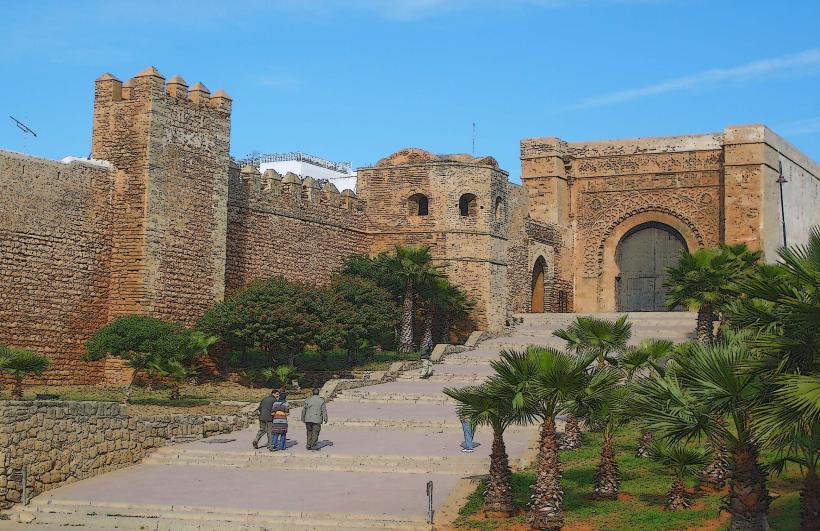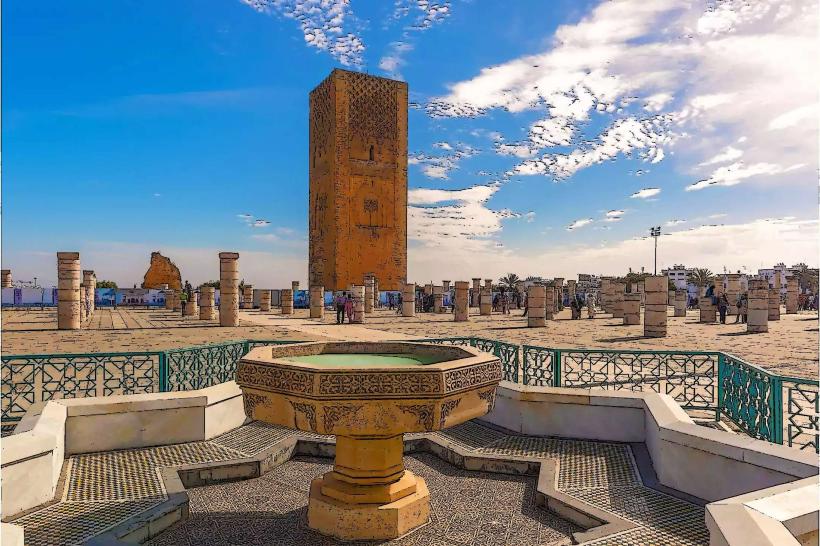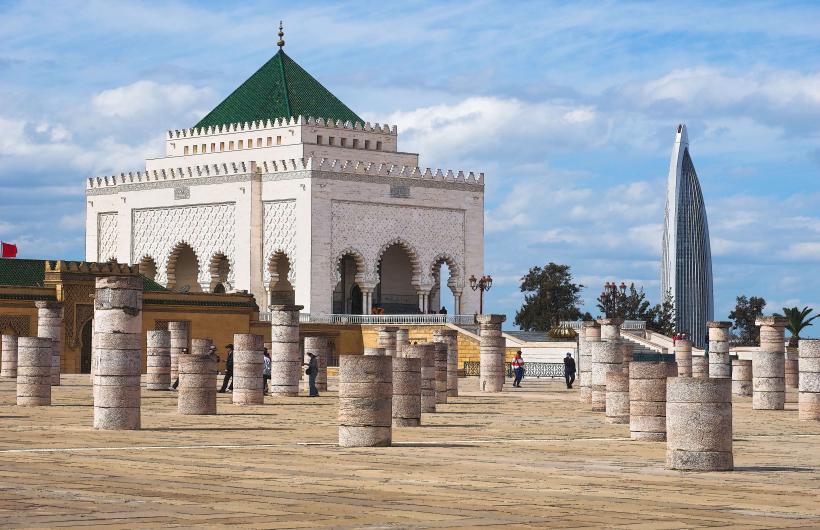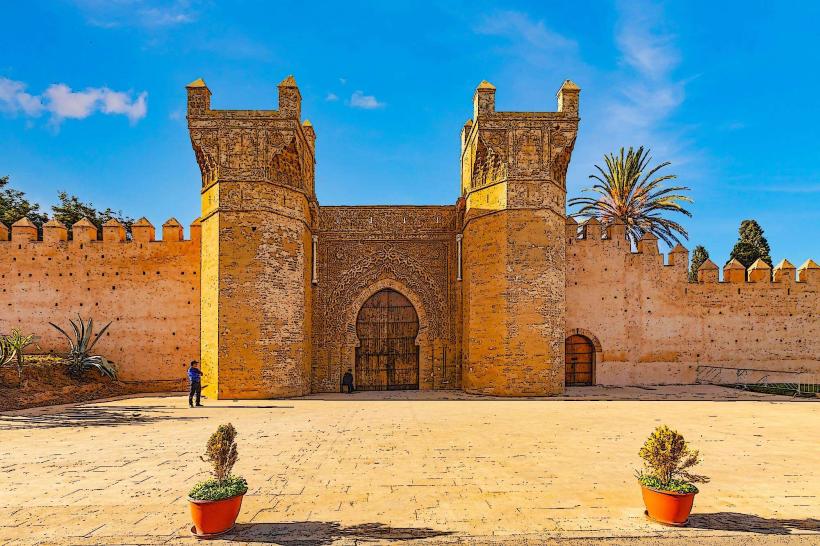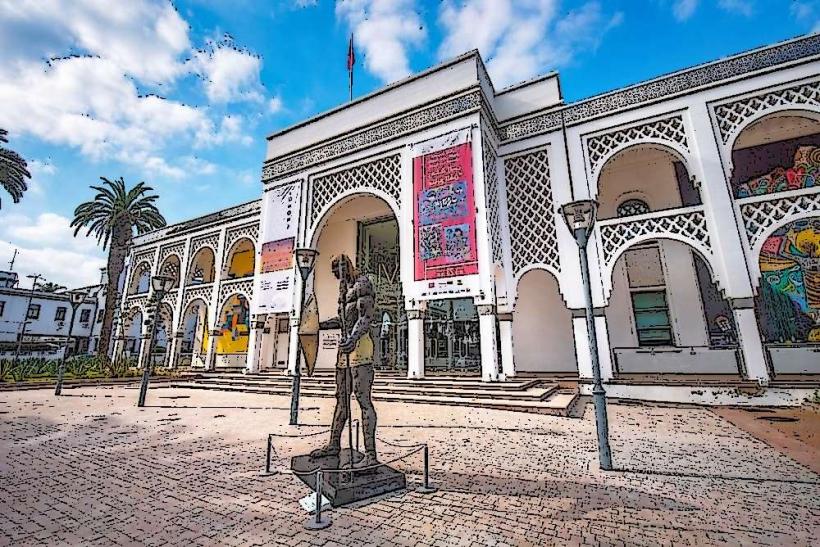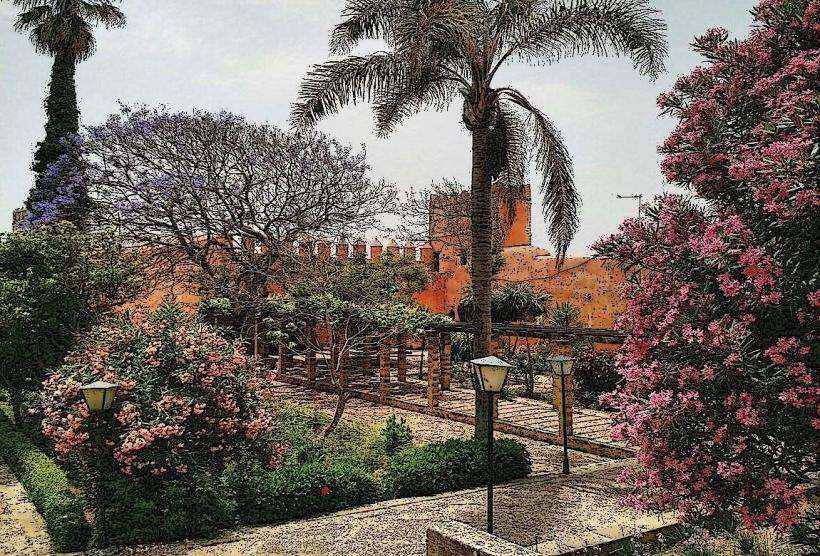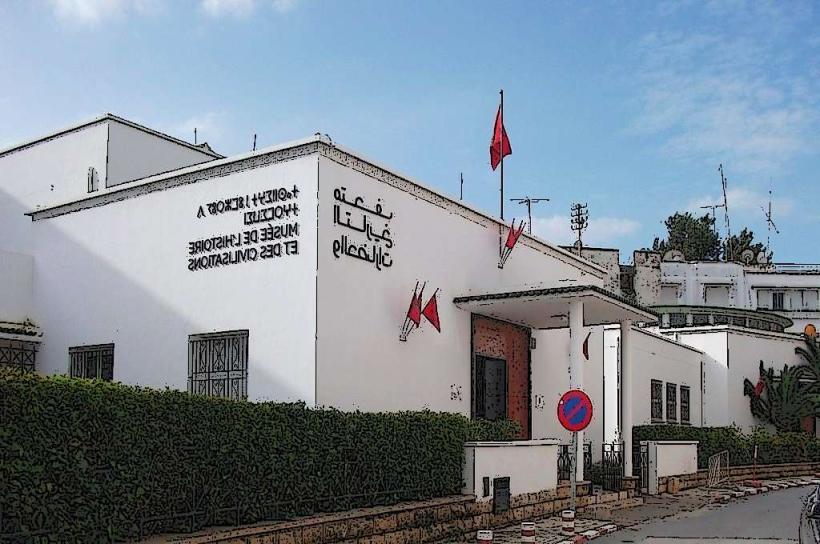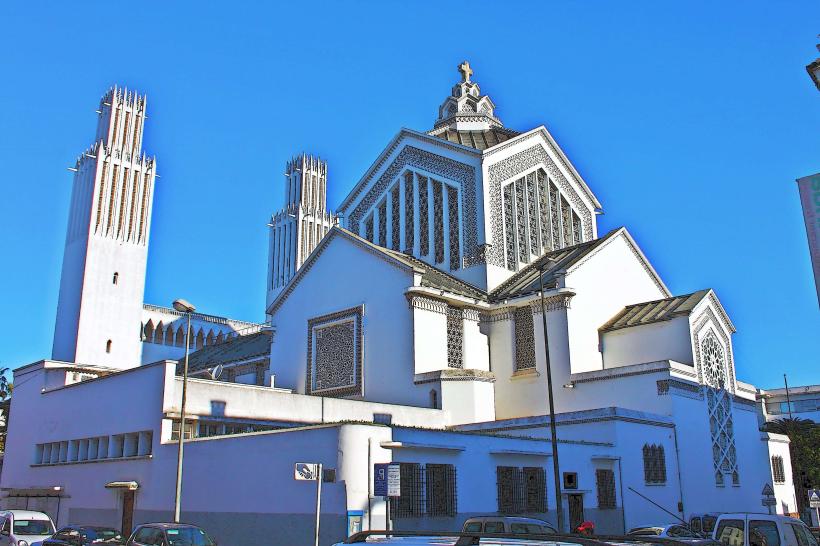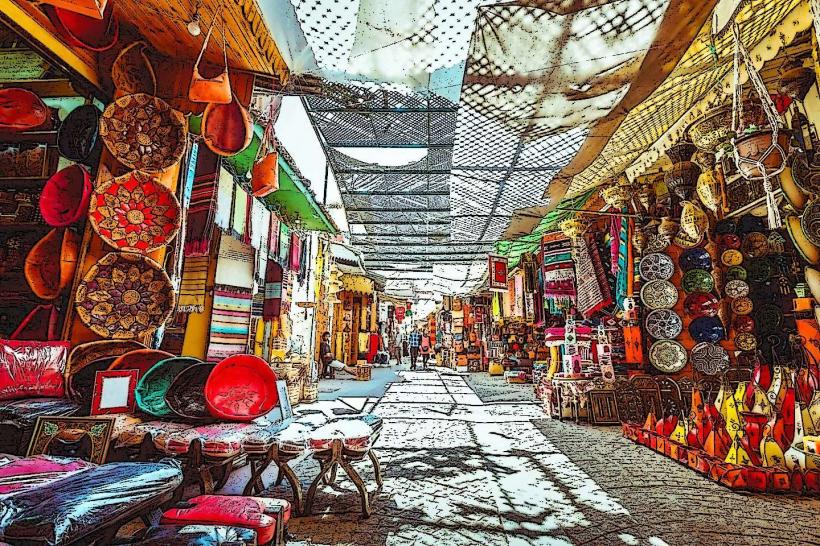Information
Landmark: Royal Palace of RabatCity: Rabat City
Country: Morocco
Continent: Africa
Royal Palace of Rabat, Rabat City, Morocco, Africa
The Royal Palace of Rabat is the official residence of the King of Morocco, situated in the capital city of Rabat.
This administrative complex serves as the primary seat of the Moroccan monarchy.
Visual Characteristics
The palace complex is characterized by its extensive grounds and a central administrative building constructed primarily from reinforced concrete and clad in local sandstone. The exterior walls are a pale ochre, with decorative geometric patterns in darker tones. The main structure features a large, central courtyard and is topped with green tiled pyramidal roofs. The overall architectural style blends traditional Moroccan elements with modernist influences, evident in its clean lines and scale.
Location & Access Logistics
The Royal Palace is located in the Agdal district of Rabat. It is approximately 3 kilometers south of the city center. Access is via Avenue Mohammed VI. Public access to the palace grounds is restricted; visitors can view the exterior from the main esplanade. There is no public parking directly at the palace. The nearest public transport stops are served by ALSA bus lines 1, 9, and 12, which run along Avenue Mohammed VI, approximately 500 meters from the main gate.
Historical & Ecological Origin
The current Royal Palace was constructed between 1964 and 1971, designed by architect Jean-François Zevaco. It was built to replace the older El Boustane Palace and serve as the primary royal residence and administrative center for King Hassan II. The site itself is on a relatively flat urban plateau.
Key Highlights & Activities
Visitors can observe the palace exterior and the main gate from the esplanade. The Royal Guard performs a changing of the guard ceremony daily at noon, which is visible from the perimeter. Photography of the exterior is permitted, but access to the interior is not granted to the public.
Infrastructure & Amenities
There are no public amenities within the palace grounds. Restrooms and food vendors are located in the surrounding urban areas, a short walk from the palace esplanade. Cell phone signal (4G/5G) is generally strong in the vicinity.
Best Time to Visit
For viewing the changing of the guard ceremony, midday (around 12:00 PM) is the optimal time. The best months for visiting Rabat are generally April to June and September to November, offering moderate temperatures. Lighting for exterior photography is most favorable in the late morning or late afternoon.
Facts & Legends
The palace complex covers an area of approximately 80 hectares, making it one of the largest royal residences in Africa. A specific architectural detail often noted is the intricate zellige tilework found on some of the exterior decorative panels, a nod to traditional Moroccan craftsmanship.
Nearby Landmarks
- Hassan Tower (1.5km Northwest)
- Mausoleum of Mohammed V (1.6km Northwest)
- Chellah Necropolis (2.8km North)
- Kasbah of the Udayas (3.5km North)
- Moroccan Parliament (1.2km North)

